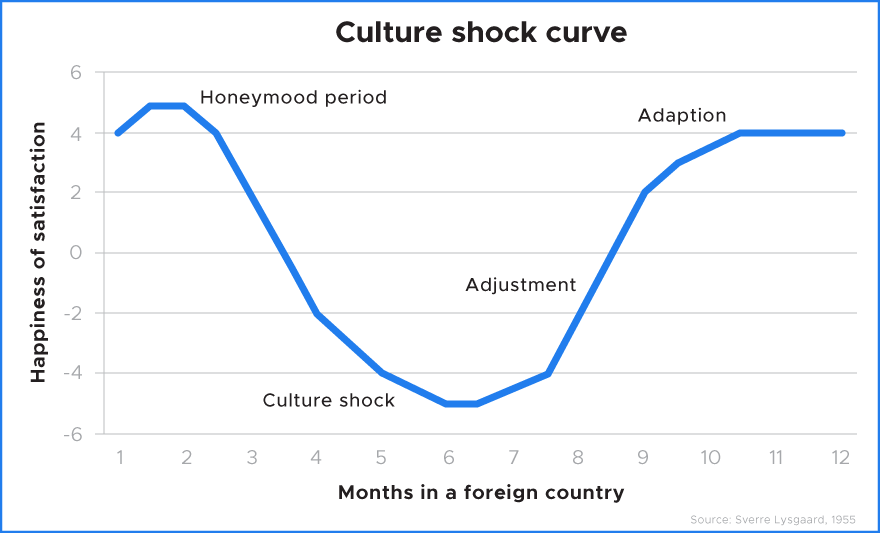You may decide to try teaching abroad for a variety of reasons. You may want to explore different places and customs. You may want to collaborate and teach in international schools with like-minded educators. This life-changing experience can be rewarding in so many ways. But it’s not all sunshine and sightseeing. We’ll take you beyond the glossy brochures and delve into the real experience, including the inevitable culture shock that can hit you like a rogue wave as you leave your comfort zone.
Social science studies have shown that international experiences can enhance creativity, reduce intergroup bias, and promote career success. (Harvard Business Review).
Culture Shock
Culture shock is a common phenomenon. Though it may take months to develop, it often affects teachers living far from home in unexpected ways. Culture shock affects people in more ways than may be expected. The length and impact of each stage vary for all teachers. You can expect to experience at least parts of the following four stages when living abroad.
 Source: Sverre Lysgaard, 1955
Source: Sverre Lysgaard, 1955

Stages of living abroad:
The honeymoon period
The “Why did I do this?” period
The adjustment period
And adaptation

Remember, the international school community may seem large but in reality, it isn’t and the way you come into and leave a school is critical. Come with a smile, flexibility, and a willingness to contribute to the school community and leave the school wishing you weren’t going and that they would hire you again enthusiastically.
Returning home for holidays
Be aware that going back home, even for short periods, such as summer holidays, can be difficult. Your family and friends might not have changed, but you will have. Some will be envious of your new lifestyle while others will be disinterested. Try not to take offense as it’s not all about you!
Culture shock is a part of the whole overseas experience just as much as the food, the people, and the environment. By preparing for it and accepting it for what it is, you can prevent it from putting a dampener on an otherwise enriching experience abroad. Are you ready for the challenge?
This is a good book for teachers new to international schools or those who have just accepted a position and are starting to think about moving abroad: Teaching Overseas: An Insider’s Perspective: Everything You Need to Know to Secure a Job in an American or International School by Kent Blakeney
Returning home for good
Teaching overseas can be a fascinating chapter in your life or it might extend indefinitely. Repatriating presents it’s own challenges. Join our International School Alumni Facebook page for tips on returning home successfully.
Here’s what you need to consider if you’re returning to the UK after teaching overseas. Many of the recommendations can be applied to other countries. You will need a free log-in with TES.
